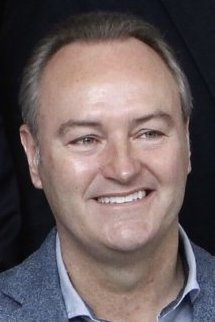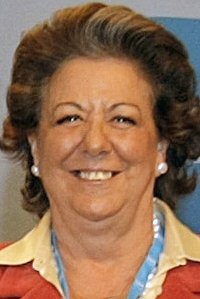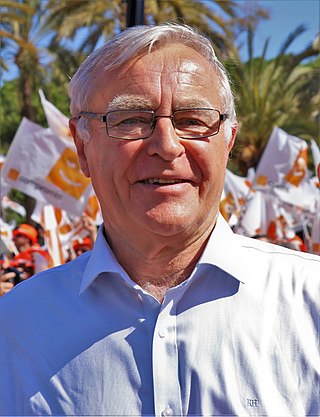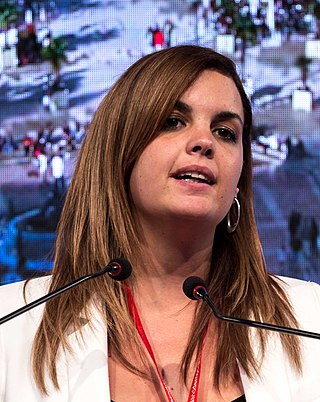Related Research Articles

The Valencian Nationalist Bloc was a Valencian nationalist party in the Valencian Country, Spain. It was the largest party in the Coalició Compromís until 2021, when it was replaced in a refoundation process by Més–Compromís.
Vicente González Lizondo was a Spanish politician and co-founder of the regional party Valencian Union

The 1987 Valencian regional election was held on Wednesday, 10 June 1987, to elect the 2nd Corts of the Valencian Community. All 89 seats in the Corts were up for election. The election was held simultaneously with regional elections in twelve other autonomous communities and local elections all throughout Spain, as well as the 1987 European Parliament election.

The 1991 Valencian regional election was held on Sunday, 26 May 1991, to elect the 3rd Corts of the Valencian Community. All 89 seats in the Corts were up for election. The election was held simultaneously with regional elections in twelve other autonomous communities and local elections all throughout Spain.

The 1995 Valencian regional election was held on Sunday, 28 May 1995, to elect the 4th Corts of the Valencian Community. All 89 seats in the Corts were up for election. The election was held simultaneously with regional elections in twelve other autonomous communities and local elections all throughout Spain.

The 2016 Spanish general election was held on Sunday, 26 June 2016, to elect the 12th Cortes Generales of the Kingdom of Spain. All 350 seats in the Congress of Deputies were up for election, as well as 208 of 266 seats in the Senate.

Coalició Compromís, also known as Compromís, is a Valencianist electoral coalition in the Valencian Community, Spain. The parties involved include Més-Compromís, the left-wing Valencian People's Initiative, and the ecologist group Greens Equo of the Valencian Country and independent members. Together, they defend Valencianist, progressive and ecological politics.

The 2015 Valencian regional election was held on Sunday, 24 May 2015, to elect the 9th Corts of the Valencian Community. All 99 seats in the Corts were up for election. The election was held simultaneously with regional elections in twelve other autonomous communities and local elections all throughout Spain.

The 2015 Valencia City Council election, also the 2015 Valencia municipal election, was held on Sunday, 24 May 2015, to elect the 10th City Council of the municipality of Valencia. All 33 seats in the City Council were up for election. The election was held simultaneously with regional elections in thirteen autonomous communities and local elections all throughout Spain.

Joan Ribó Canut is a Spanish politician and engineer who was the mayor of Valencia from 2015 to 2023. Ribó is a member of Coalició Compromís.

The 2019 Valencian regional election was held on Sunday, 28 April 2019, to elect the 10th Corts of the Valencian Community. All 99 seats in the Corts were up for election. The election was held simultaneously with the April 2019 Spanish general election. This was the first early regional election ever held in the Valencian Community, as well as the first Valencian election to not be held concurrently with other regional elections.

The 2011 Valencia City Council election, also the 2011 Valencia municipal election, was held on Sunday, 22 May 2011, to elect the 9th City Council of the municipality of Valencia. All 33 seats in the City Council were up for election. The election was held simultaneously with regional elections in thirteen autonomous communities and local elections all throughout Spain.

The People's Party of the Valencian Community is the Valencian branch of the People's Party, as well as one of the historically most powerful organizations within the PP.

The 1991 Valencia City Council election, also the 1991 Valencia municipal election, was held on Sunday, 26 May 1991, to elect the 4th City Council of the municipality of Valencia. All 33 seats in the City Council were up for election. The election was held simultaneously with regional elections in thirteen autonomous communities and local elections all throughout Spain.

The 2023 Valencian regional election was held on Sunday, 28 May 2023, to elect the 11th Corts of the Valencian Community. All 99 seats in the Corts were up for election. The election was held simultaneously with regional elections in eleven other autonomous communities and local elections all throughout Spain.

The 2019 Valencia City Council election, also the 2019 Valencia municipal election, was held on Sunday, 26 May 2019, to elect the 11th City Council of the municipality of Valencia. All 33 seats in the City Council were up for election. The election was held simultaneously with regional elections in twelve autonomous communities and local elections all throughout Spain, as well as the 2019 European Parliament election.

The 2023 Valencia City Council election, also the 2023 Valencia municipal election, was held on Sunday, 28 May 2023, to elect the 12th City Council of the municipality of Valencia. All 33 seats in the City Council were up for election. The election was held simultaneously with regional elections in twelve autonomous communities and local elections all throughout Spain.

Sandra Gómez López is a Spanish Socialist Workers' Party (PSOE) politician.
Fernando Giner Grima is a Spanish businessman, economist and former politician. A member of the Citizens party, he led them to six seats on Valencia City Council in 2015 and 2019, before leaving politics when they lost all their seats in 2023.

The 2027 Valencia City Council election, also the 2027 Valencia municipal election, will be held on Sunday, 23 May 2027, to elect the 13th City Council of the municipality of Valencia. All 33 seats in the City Council will be up for election. The election will be held simultaneously with regional elections in at least eight autonomous communities and local elections all throughout Spain.